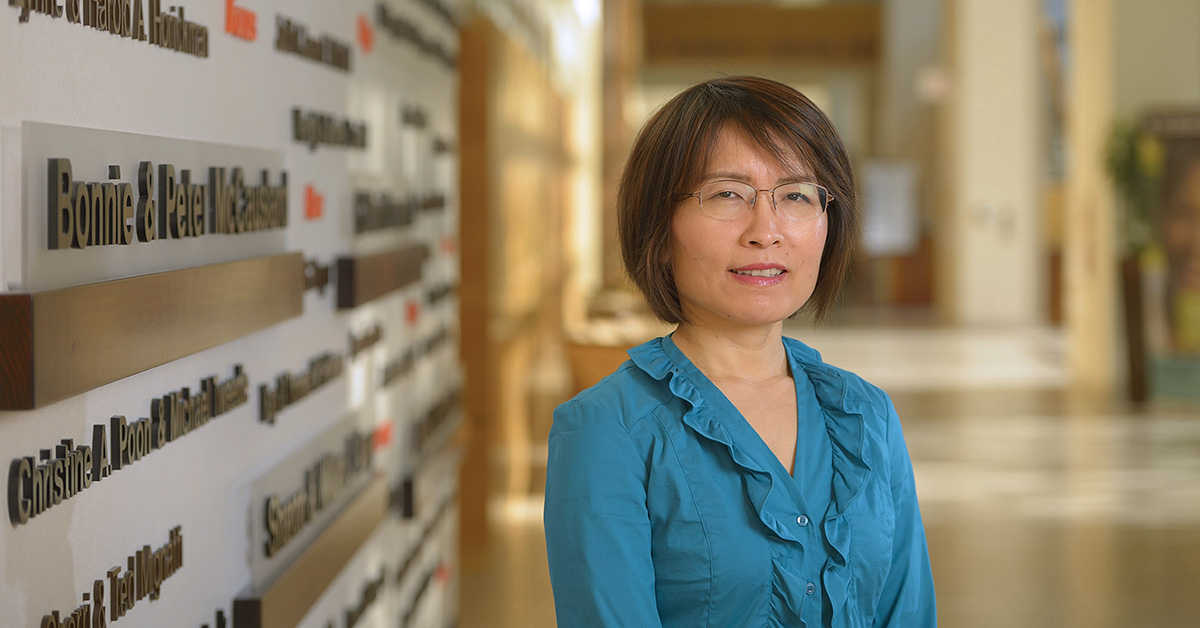
PHILADELPHIA (September 16, 2020)—Researchers at Fox Chase Cancer Center recently received a grant to study the molecular mechanisms regulating allogeneic T cell responses that could potentially prevent deaths following stem cell transplants.
The grant, awarded by the National Institutes of Health, provides Temple University and Fox Chase researchers more than $3 million over the course of five years to study how T cell response was regulated in stem cell transplant environments. With new understanding of the underlying mechanisms and new approaches to modulate this process, researchers may ultimately reduce the possibility of a patient contracting graft-versus-host-disease (GvHD).
“Bone marrow transplant, which is also called allogeneic stem cell transplant, is often used to treat malignant or non-malignant disease. You get the bone marrow cells from the donor and it’s then given to the patient,” said Yan Zhou, PhD, MSE, principle investigator for the study at Fox Chase and assistant professor in the Molecular Therapeutics research program.
“The problem with this is that sometimes the donor immune cells will attack the host immune cells, causing GvHD, which causes the host’s tissue and organs to fail. It can ultimately kill a person,” said Zhou.
GvHD accounts for up to 15% of deaths after transplant, according to researchers. Zhou said that although there are existing methods that can help prevent and treat GvHD, they have significant limitations and may also increase risk of malignant disease relapse and infection. For this reason, finding new approaches to controlling GvHD while retaining graft-versus-leukemia effects is paramount.
The work will be a collaboration with Yi Zhang, MD, PhD, and Jonathan Soboloff, PhD, from the Fels Institute for Cancer Research and Molecular Biology at the Lewis Katz School of Medicine at Temple University. They are the principal investigators of the project and both bring their considerable expertise to this work.
“We aim to identify the key molecular pathways which could be reprogrammed to regulate GvHD response,” said Zhou.
With the grant, the researchers plan to use advanced sequencing technology to find the global expression and epigenetic profiles of the immune cells that can then be used to better understand how T cells develop and function in these environments.
“Findings from this study will provide novel insights into the pathophysiology of T cell immunity. This will not only be useful for reducing GvHD but can also be used in the identification of T cells for the improvement of other types of immunotherapy for advanced cancer,” said Zhou.
“There are some interesting findings already, so the next step would be to try targeting this process pharmacologically. That’s something that’s already underway, so it’s pretty exciting for us,” she said.